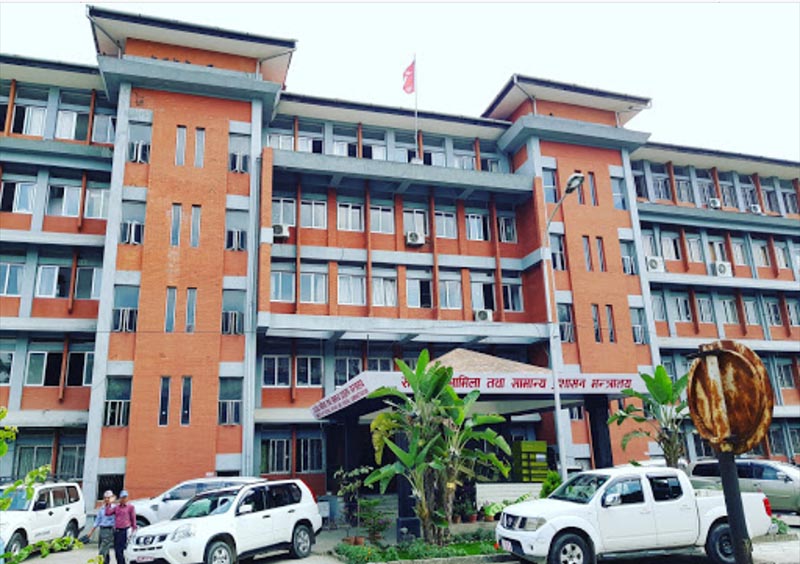Maintain uniformity in disability ID card: MoFAGA
Kathmandu, August 30
The Ministry of Federal Affairs and General Administration has directed all local levels to maintain uniformity in the format and colour of disability identification cards, in accordance with the ‘Procedure for Distribution of Identification Card to Persons With Disabilities-2018’.
A circular issued by Disability Rights Promotion Section of the MoFAGA earlier this week warned that some local levels were found distributing the ID cards in the format and colour different from the ones prescribed by the procedure, while others had yet to start the distribution of the important document that serves to identify persons with disabilities.
“Failure of some local levels to issue ID cards on time has caused difficulties for persons with disabilities to enjoy benefits, including social security allowance, to be provided by the government. Therefore, all local levels are requested to abide by the prescribed format and colour of ID cards. The cards should be distributed to beneficiaries without any delay,” the circular read.
Section 61 of the Act Relating to Rights of Persons with Disabilities (First Amendment)-2018 stipulated a provision of issuing ID cards to the persons with disabilities. A person with complete disability (‘A’ category), severe disability (‘B’ category), moderate disability (‘C’ category) and general disability (‘D’ category) will be provided with red, blue, yellow and white cards, respectively, the procedure read.
Disabled persons holding red ID cards under the complete disability category get a monthly allowance of Rs 2,000 while blue card holders are entitled to Rs 600 per month.
A nine-member Local Coordination Committee led by deputy mayor/vice-chairperson of the local government concerned is responsible for distribution of ID cards to eligible persons on recommendation of chairman and a doctor of the concerned ward. The card is used to identify of Nepali citizens with various categories of disabilities and to establish their access to amenities, help maintain records of disabled persons at local levels, provide them benefits as committed by the government in the Convention on the Rights of Persons with Disabilities to which Nepal is a party.
The identity, which comes in the format of citizenship certificate includes the details of eligible person written in Nepali and English languages, on either side. A person facing physical and mental complexities to reach his/her local level may obtain the identity card from the local level where he/she is currently residing. The procedure also requires local levels to operate mobile camps in areas under their jurisdiction, at least once a year, to provide identity cards.






